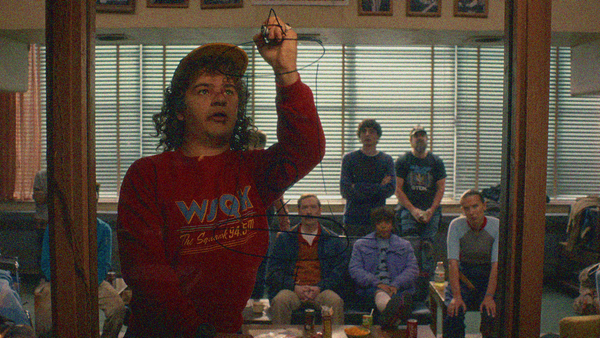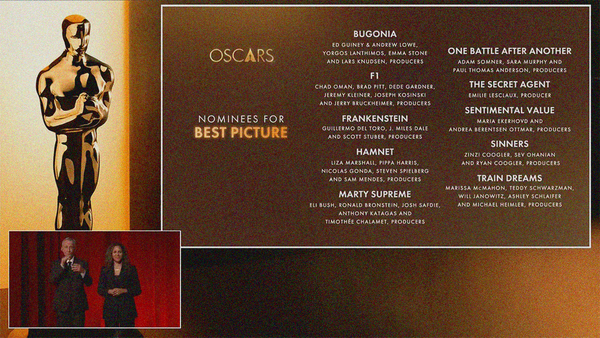Week Ending 5/23/25
A branding crisis
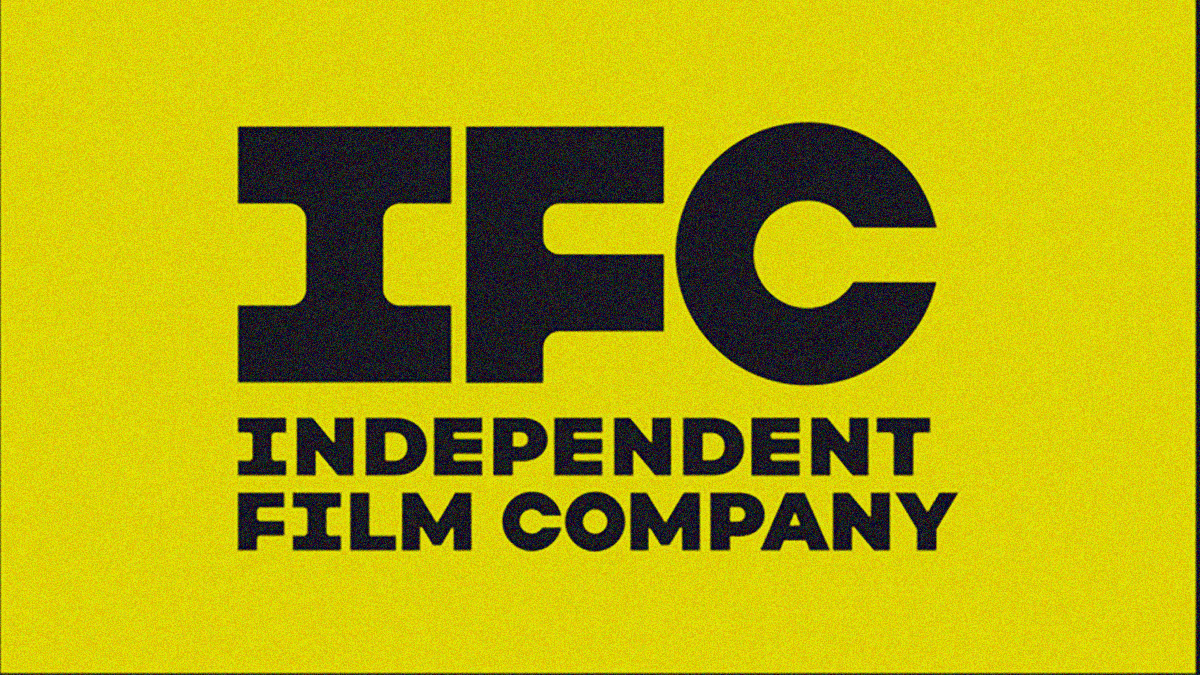
Want to watch the new IFC Films title? Well, it’s Independent Film Company now, so change your searches and bookmarks accordingly.
Firing up Max to catch the latest Warner Bros. title? Well, you better make sure you have the correct app because it’s HBO Max (again) now. And if they made you download a completely different app when they dropped the “HBO,” you can presume they’ll do the same to add it back.
What is happening in this industry? Are these companies trying to make it impossible for consumers to find them? It’s one thing to wrongly erase the legacy portion of your brand only to realize the mistake. It’s another to transform your recognizable name into the generic description of your product. IFC had the wherewithal to go from Independent Film Channel Films to IFC Films for brevity upon expanding to distribution, but now they’re blowing it back up to three words that literally describe their competition? AI search nonsense will only make matters worse once HAL feeds back lists of every independent film company but THE Independent Film Company.
SEO is dead. Brand recognition is dead. Cable died to birth streaming only for streaming to become cable. Wall Street is just grinding Hollywood into Soylent without a care in the world as long as shareholder portfolios grow.
Yay.
What I Watched:
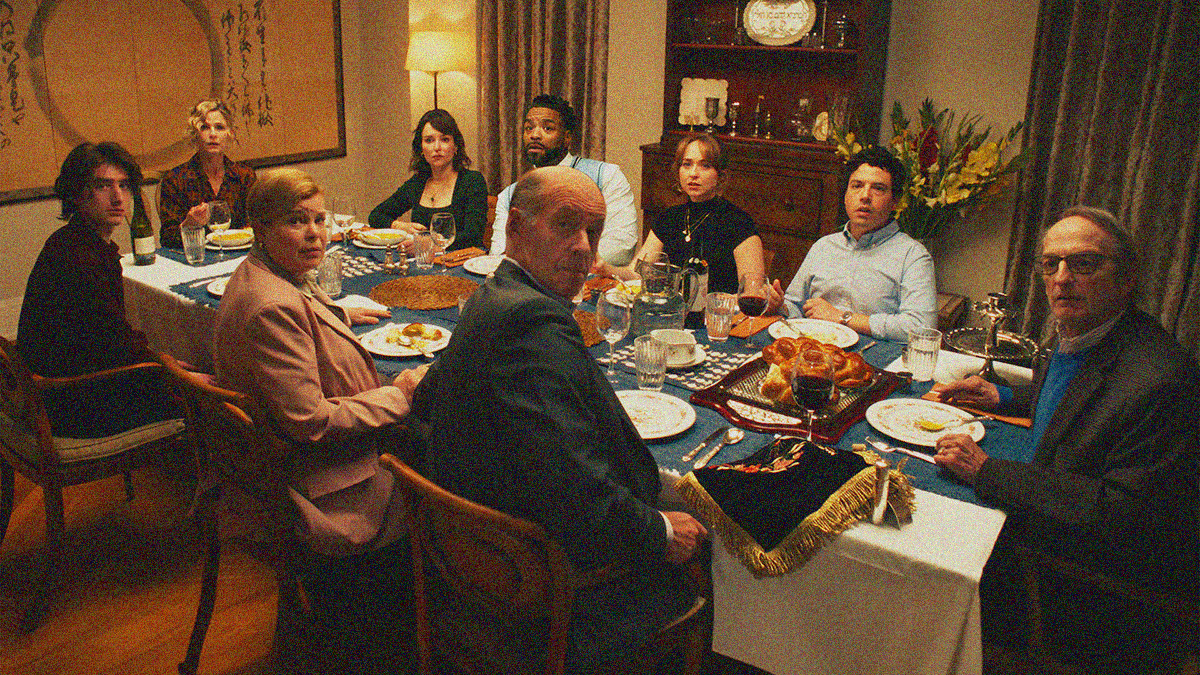
BAD SHABBOS
(limited theaters)
David's (Jon Bass) family still gets together every Friday night for Shabbat dinner regardless of the arguments and shouting matches that ultimately ensue. They're all still in New York and it's an excuse to be with family, uphold tradition, and enjoy the often-explosive entertainment as long as they aren't the one embroiled in that evening's squabble. But this weekend is different and demands a modicum of restraint since David's fiancé Meg's (Meghan Leathers) Catholic parents are coming all the way from Wisconsin to join them. So, they're each a bit on-edge imagining just how bad things might get.
Rather than simply engage with the odd couple antics of entitled Christians (John Bedford Lloyd's John and Catherine Curtin's Beth) crashing a volatile yet loving table of Jews, however, Bad Shabbos director Daniel Robbins and co-writer Zack Weiner introduce a more pressing event to the fold by way of the appearance of a dead body. And, due to the circumstances surrounding this death implicating a member of David's family in manslaughter, they must decide what to do. Call the police and risk one of them going to prison? Or attempt moving the body so it can be found days later as just another proverbial "New York death" and risk everyone going to jail?
David votes police. His younger brother Adam (Theo Taplitz) implores him to reconsider. Their sister Abby (Milana Vayntrub) is justifiably enraged while Dad (David Paymer's Richard) desperately looks to his latest fad of "nonviolent conversation" to guide him through the chaos as Mom (Kyra Sedgwick's Ellen) prays for the whole ordeal to be over. They don't have much time to argue through it, though, since they're up against two ticking clocks. One is the impending arrival of Meg's parents and the other is the start of the night doorman's (Alok Tewari's Cano) shift. Because the only way to make not calling the police work is with help from their daytime doorman friend Jordan (Cliff "Method Man" Smith).
What follows is a fast-paced, irreverent romp as they run around trying to get themselves out of this impossible situation. Everyone's quirks become both a means towards pushing the plan forward and an inevitable hiccup ensuring things get worse before they can get better. It takes almost twenty minutes just for everyone to learn about the body due to only one character being trusted with that information at a time. The hope is that the next will have the correct answer, but this scenario not having a correct answer means another candidate must be brought up to speed. And all bets are off once John and Beth enter the room.
The premise for everyone coming together being religious allows for a nice mix of jokes at Judaism's expense and sweet moments of a family's love seen through its traditions (and in spite of them). Because beyond the corpse is a story about inclusion and the many ways in which we exploit religion as a means to bolster inherent prejudices. Yes, we see this in a broad way via John's inability to do the bare minimum as a guest in a Jewish home. But it's also seen with impactful nuance via Ellen's inherent mistrust in her son marrying a non-Jew—despite Meg literally converting to Judaism to ease that worry. We're so quick to judge and lord our superiority that we can refuse to accept what our eyes see.
This is very much an actor's film as a result because the tone and subject matter could quickly turn towards bigotry if not for how each performance delivers its dialogue born from knee-jerk impulse. Lloyd and Curtin toe the line perfectly to stay on the side of ignorance rather than hate. Paymer and Bass expertly glide between clichéd neuroses and situational panic to never fall into stereotype. Vayntrub and Taplitz provide opposite spectrums of support via her need for convenience causing her reverence to wane and his search for identity driving him to overcompensate. And Method Man unsurprisingly steals the show as the outsider holding as much potential for salvation as ruin once he lets his Judaism fanboy out.
It's a fun ride through a familiar comedic premise using specific cultural touchstones to foster a uniquely singular sensibility. Credit the filmmakers too for never holding piety above the absurdity of the premise. The goal is to show how much this family loves each other, but that shouldn't erase the fact they can still also be bad people. Sure, the dead body belongs to someone Robbins and Weiner go out of their way to ensure we know is no great loss, but we're still talking about a person. Their job isn't to redeem their characters, though. It's to set them on a path that entertains while supplying enough growth to invest in their success. I like when a script isn't afraid to break an egg for its omelet without worrying about needing to retroactively save that egg too.
- 7/10
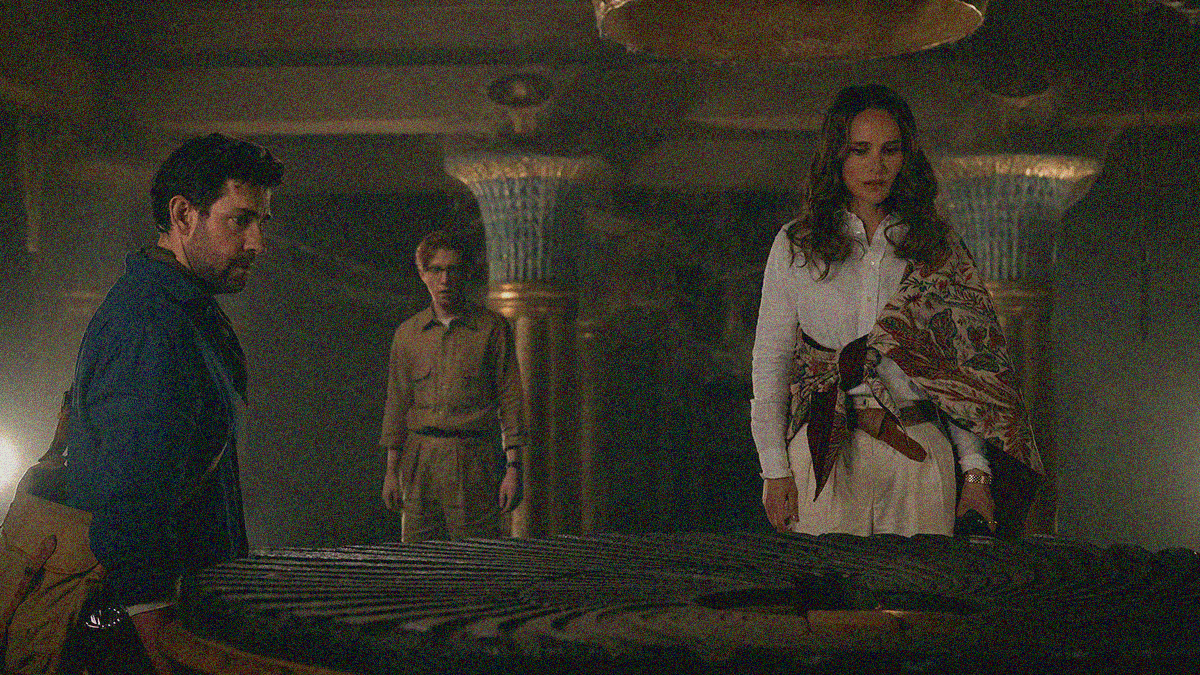
FOUNTAIN OF YOUTH
(streaming on AppleTV+)
"What if Dan Brown, but with a sense of humor?" That's the pitch James Vanderbilt would go with in an honest world, although I have a feeling his actual pitch was more along the lines of, "What if Indiana Jones, but the lead is a pair of squabbling siblings?" The truth, however, is that Vanderbilt's Fountain of Youth (as directed by Guy Ritchie) is more, "What if Hollywood still thought green-lighting the National Treasure movies would prove profitable in 2025, but let’s drop it on streaming instead of in theaters so we'll never really know?"
It starts with some fun flavor as Luke Purdue (John Krasinski) is seen driving through a busy Thai street on a scooter, constantly hitting ignore on his phone until the man calling him (Steve Tran's Kasem) pulls up in a car to scream "Answer your phone!" out the window. Luke puts on his best Jim Halpert smile, tells this heavy who's demanding he hand over the priceless painting strapped on his back what he wants to hear, and then makes a run for it. The ensuing chase is energetic, funny, and destructive, culminating in our hero's escape proving short-lived when accosted by Eiza González's Esme. Luke has enemies everywhere.
Well, he makes another of his estranged sister Charlotte (Natalie Portman) by using his appearance in London as a ruse to commit a crime to which she will inevitably be labeled an accomplice. That's when we meet Interpol's Inspector Jamal Abbas (Arian Moayed)—one more foe for Luke—and discover he was actually trying to steal two things: a Rembrandt and her. Because these siblings used to go on "archeological" adventures with their father before he passed. Luke wants to rekindle that camaraderie and save Charlotte from the "boring" life this script really wants us to believe she thinks it is too. The band's back together.
It's a lengthy bit of expository action to simply get the Purdues back on the same page, but also a necessary runtime considering all the peripheral characters we must meet for the plot to finally get going. Besides those aforementioned foes are also Luke's allies in Murph (Laz Alonso), Deb (Carmen Ejogo), and their financial backer Owen Carver (Domhnall Gleeson). The latter is the catalyst for the mayhem: a dying billionaire who cajoled Luke into helping him find the fountain of youth to cure his cancer. It's a quest that will earn the Purdue name a reverent luster if they prove successful. And if Abbas doesn't arrest him first. And if Esme doesn't kill him along the way.
Throw in Charlotte's musical prodigy son Thomas (Benjamin Chivers) and the gang is set with uniquely particular skills at the ready that will prove crucial to solving at least one subsequent brick wall each. There's a heist aboard the sunken Lusitania. Another within a German library's secret collection room. And even the desecration of the Pyramids at Giza. None of these incidents are that compelling on their own, but Vanderbilt and Ritchie do well distracting from this fact by supplying something else to look at. Carver's secretive nature. Thomas' inexplicable presence amongst international criminals still using their real names despite Interpol's chase. Luke and Esme's will-they-won't-they chemistry that works for entertainment value if nothing else.
Don't therefore think too hard about what's happening. Fans of Dan Brown and the National Treasure series shouldn't have any trouble with that. Heck, I didn't really have any trouble with it either until the group arrived in Egypt and the filmmakers showed they could actually do something more interesting than generic fast-speed car drifts and automatic weaponry fights that inexplicably never seem to be able to hit a top billed actor. That's when I started to realize it had all been empty calories prolonging a mostly uninspired journey collecting obtuse clues that the Purdues just happen to have the knowledge necessary to connect, throw away, and move on to the next.
It's also around then that I finally put my finger on why Krasinski felt so woefully miscast. Don't get me wrong, Portman does too—but she's good enough to push past that fact and deliver a solid performance anyway. I like Krasinski, but Jim Halpert: Tomb Raider is a huge stretch since he's at his best when used as support (no, I haven't watched "Jack Ryan"). The quips with González? Fantastic. Driving the bus? He gives off such "little brother" energy that the play at being "big brother" falls flat except when talking to Thomas. But that's also when I realized he talked to everyone else like he talked to the boy: still wholesome and endearing, but also patronizing when opposite an adult.
This might be intentional, though, because Luke must be naive enough to not see what's happening. (Vanderbilt really thinks keeping a character one-dimensional is the same as pretending he is something he isn't when he so obviously is.) So, make him into an expendable rube. An idealistic puppy we know has a kick coming his way with no way to stop it. Make him ... have visions directly inferring upon the plot in ways that are both tedious in their literalism and superfluous in their "you talk in your sleep" allusions that never payoff? Fountain of Youth is full of these details that seem interesting if there was a season of television to expand upon them but prove completely useless in a ninety-minute movie bloated beyond two-hours.
It's only perfect then that the climactic action sequence that borders on being captivating with its supernatural potential (the pyramid set design and puzzle chambers are admittedly gorgeous) winds down from sixty to zero on a dime with an Oasis "Live Forever" needle drop ushering us towards the credits with record-scratching "Thanks for coming!" whiplash just when we finally felt some adrenaline. We spend two-hours working up to this big set-piece and its abrupt cover-it-in-cement-and-forget-it ending becomes the film's abrupt ending too. Foreplay for days and zero aftercare. Whatever fun I thought I had suddenly felt hollow because it truly led nowhere.
- 4/10
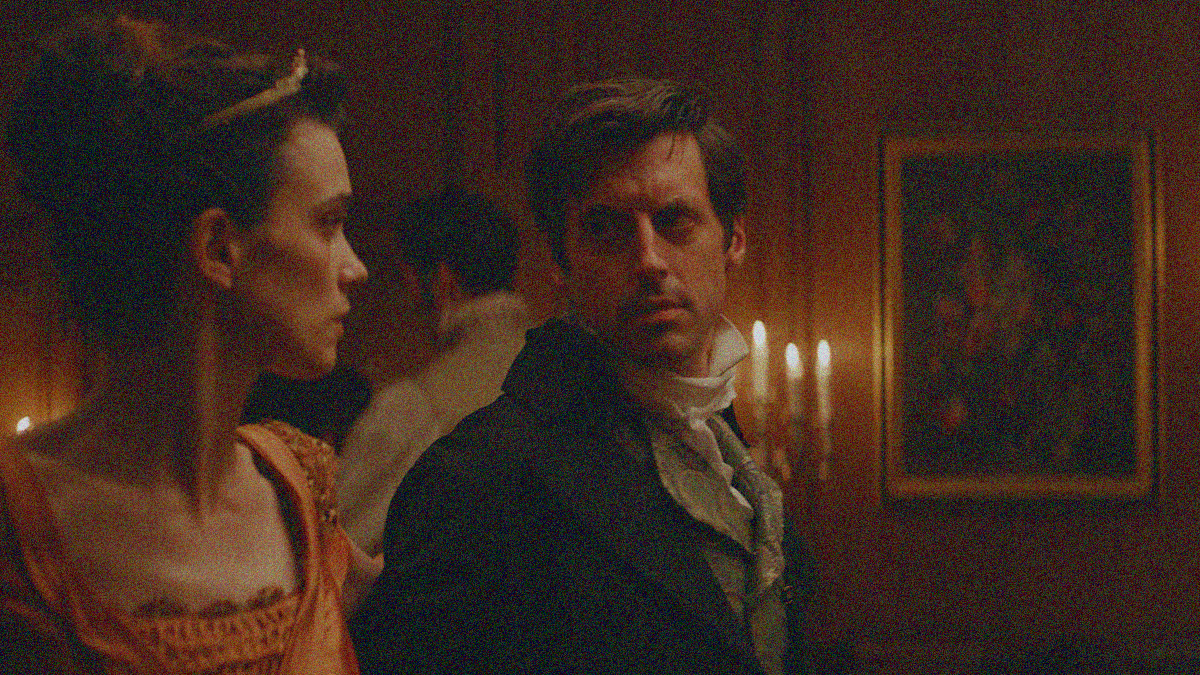
JANE AUSTEN WRECKED MY LIFE
[Jane Austen a gâché ma vie]
(in theaters)
Agathe Robinson's (Camille Rutherford) womanizing best friend Félix (Pablo Pauly) jokes that she's single because she hasn't found her "Darcy" ... but he's not entirely wrong. A hopeless romantic, she writes the sort of love stories that make her creative writing teacher scoff about her needing to drag herself into the twenty-first century. She dreams of finding that spark that she knows she won't via dating apps (if Félix's one-night stands are any indication) and has all but closed herself off from it happening by disengaging from the more pragmatic real world. It's to the point where she requests her server at the Chinese restaurant change her cup to the one with the naked man on the bottom.
Intriguingly enough, that request is exactly what Agathe needs to be inspired. Writer/director Laura Piani shows her feverishly writing a new story onto her placement in the aftermath—one that proves so captivating that Félix can't help but ask for more upon reading it without her permission (albeit "permission" is hardly a word in their relationship's vocabulary considering he's often found sleeping on her and her sister's couch when not meeting his next lady caller). Sadly, like with most of her stories, Agathe doesn't know where to take it next. So, without her permission again, Félix sends this auspicious start to the Jane Austen Residency knowing she'd never do so herself. They also love it and invite her for a two-week stay to foster an epiphany.
Jane Austen Wrecked My Life officially begins when Félix drives Agathe to England and kisses her goodbye. There are tragic circumstances behind why she has closed herself off to live in the fantasy of literature's happily ever afters and it therefore makes sense that the one person who would understand her and push her to break free is her best friend. But is he her "Darcy"? Will this kiss arouse something inside her to finish the story? Or will its potential be blown out of proportion (or ruined by his tendency to ghost or "breadcrumb" women) once she's left stewing on it alone miles away? We know the answer as soon as she meets her English driver Oliver (Charlie Anson) because he seems like everything she abhors in real life while inevitably proving to be everything she wants in fantasy.
There's a lot more going on here than you might expect considering the crux of the film is ultimately whether Agathe chooses Félix or Oliver. We have her necessary confrontation with the past to restart her life ten years removed from the tragedy that paused everything. There's the relationship between the kindly senile old man and his wife who run the residency with passion, lineage, and love for literature (with some Wordsworth to provide their guest much-needed clarity). And the imposter syndrome of Agathe being at a place meant for "real writers" despite being an amateur who wonders if this latest bit of writer's block is the final nail in the coffin of her dream to get published. The thing is, however, that all those aspects play into her central decision.
In grand Jane Austen fashion is this unexpected odd-couple romance between two very like-minded souls lost beneath the baggage they've let burden their shoulders just when easier and expected answers arise to force them both into actually rolling the dice and pursuing what they want rather than what they have. Agathe gets sarcasm and a healthy push from everyone around her whether Félix, her sister Mona (Alice Butaud), or even her nephew Tom (Roman Angel) when he climbs into her bed because a man is in his mother's and "she never has one in hers." So, it only makes sense that the rapport she grows with Oliver follows suit—their blossoming affection born on the back of snide smiles and lengthy TMI dumps blurted out to assuage each other's internalized shame.
And just when Agathe thinks she's found love in one direction, the other arrives to grab her attention. And when the latter starts to win out, the former returns to muddy the waters yet again. Because love, like writing, isn't easy. At a certain point, she must exit her comfort zone (or self-imposed exile) to experience the spontaneity of life. Yes, she might have been born a century too late when it comes to her sensibilities, but she's also been too afraid to confront why that is and whether it can be changed. Because "safety" isn't always safe. Sometimes it's an illusion that proves to be yet another prison when all is said and done. It's why she can't finish a love story until she allows herself to live one ... not just accidentally back into it from the fear of being forever alone.
Piani does a wonderful job paying homage to Austen while also mining the author's place in literary and cultural history via this locale, her descendants, and the magic of finding one's voice. The comedy is lively and infectious, especially whenever Rutherford and Anson are together playing coy so as not to let their defenses down. And the supporting cast is wonderful (Liz Crowther and Alan Fairbairn as the residency's stewards are an absolute delight). We easily invest in Agathe's struggle to escape her past and embrace her desire to be a writer and in love while witnessing the enjoyably rocky path taken towards that goal. As the age-old saying goes, one must first understand oneself before they can truly be vulnerable enough to let someone else know them too.
- 7/10
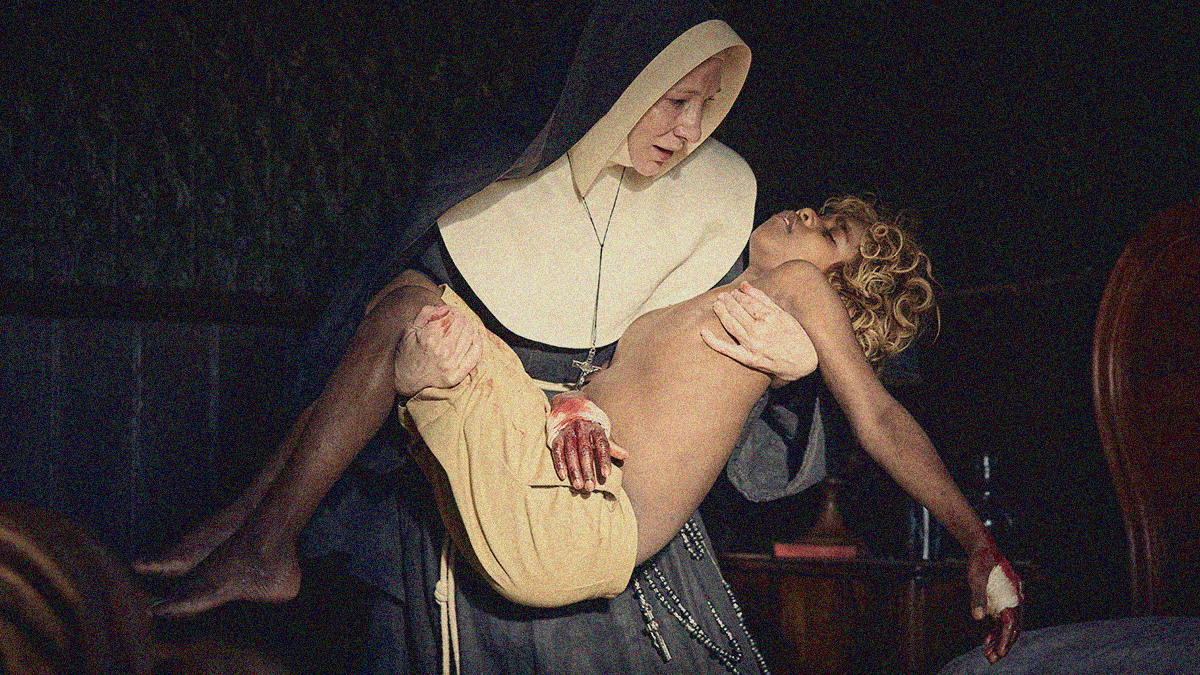
THE NEW BOY
(limited theaters now; VOD on May 30)
We meet Warwick Thornton's nine-year-old aboriginal protagonist (newcomer Aswan Reid) at the start of The New Boy as he's putting a grown man in a chokehold. Alone and roaming the Australian desert, we can presume many things. Maybe this white man saw the boy stealing something and made chase to punish him. Maybe he was out searching for orphan natives to kidnap and send to assimilation camps run by the Catholic church. Maybe the boy attacked him first. Either way, what happens next falls under the government's bid to "breed out the black." Capture him, send him away, and don't let him back into "civilized" society until he resembles a "good" Christian man.
Born from a script almost twenty years old, Thornton draws from his own experiences as a rambunctious child sent off to a Catholic boarding school to calm down. He admits that it worked and that he embraced the religion—in large part because of the similarities to his own native spirituality. Thornton makes an interesting point in his director's statement, however, that this commonalty only ever truly works in one direction since Catholicism demands power and control. Aboriginal people are quick to adopt the Church's lessons because the familiarity adds to what they already believe. But it isn't taught with addition in mind. The Church wants to indoctrinate via subtraction. To accept Jesus is to forsake all else.
To portray this dynamic, he sends Reid (known only as "New Boy" until the very end) to an orphanage run by a "renegade" nun named Sister Eileen (Cate Blanchett). It's never fully explained, but she writes to the government agencies financing her establishment and sending new wards as Dom Peter, a priest. Was he actually in charge only to die with her adopting his position to keep things running? Did he ever exist? She knows what she's doing is a sin as far as repenting during confessional with herself (apologizing for baptizing the boys under her care despite not having the authority), but also that it's a necessity to maintain her mission. They need her guidance, and she loves them in return.
This is why it can be difficult to see where things are going at first. Sister Eileen isn't a taskmaster. She lets "New Boy" go at his own speed so he can learn their routines by observing the rules the other boys follow. She creates a safe place for him to join the others and allows Sister Mum (Deborah Mailman) and their handyman-of-sorts George (Wayne Blair) as much responsibility and independence as she provides herself. They all do their chores, listen to music, and enjoy each other's company while questioning the wartime orders from her superiors to risk cutting the orphans' studies short so they can work towards the cause. It's only when a new statue of Jesus on the cross arrives that Thornton's dramatic motivations become clearer.
That early moment where "New Boy" rubs his fingers and conjures a floating spark of light to laugh with isn't a flight of fancy solely housed in his own imagination. No, it does happen and, if he wasn't under his bed while doing it, the other boys would see that spark too. The question then is whether this magic is good or bad. We inherently know it's the former, but that never stops an entity like the Catholic Church from saying the opposite with enough force to make its faithful agree regardless of what they actually believe. This is even true if that magic performs a miracle, which this one does during a potential tragedy. Because what does that miracle mean to its observers? That God has taken this boy as His vessel to prove their work converting aboriginal children is a success.
One false step, though, and that sense of wish fulfillment—that bona fide proof of Sister Eileen's faith—can turn to blasphemy. If that boy does something "wrong" purely out of innocent ignorance considering he has no clue who Jesus is or what he stands for beyond idolatry without the words to learn, the reverence she had for him sours into fear. That spark becomes a test for her rather than the salvation of the boy it saved. It's a trick meant to steer her from her path and thus a reminder that these boys need "cleansing." Because, as Thornton said, Catholicism, despite all its beautiful ideas, will always be ruled by its desire to conquer. An unbaptized aboriginal boy with a lost soul doesn't know the one true God yet, so anything "good" he does must be in service of "evil" until being "saved."
How Thornton portrays this truth is a sobering treatise on just how damaging something as powerful as belief can be when used in service of alienation rather than empathetic unification. You see it in Sister Mum and George—aboriginal themselves—looking upon Reid with terror even if, in the case of George, it's less about faith and more about not wanting to lose the comfortable life he's found. You see it in Sister Eileen's self-flagellation in response to letting herself be distracted by what she wanted to see rather than what her duty to the Church demands. And, most traumatically, you see it in "New Boy" when his inability to understand what's happening risks severing the connection to his magic.
It's quite the dual threat of metaphor via fantastical realism and the cultural violence inherent to colonialism by an artist who lived it. And it means more that Thornton admits Catholicism helped him because the film doesn't become a hit piece as much as a level-headed, compassionate view of how close we are as a species to realizing how alike we are if we were willing to open our hearts to those similarities and stop seeking out the differences instead. That's the crucial bit about intolerance that the intolerant refuse to see because of their innate fragility. You must listen and learn to become better people. You must be willing to adapt. Because if your plan for "peace" is to simply call yourself better and force everyone to conform, you truly have nothing to offer but hate.
- 7/10
Cinematic F-Bombs:
This week saw 5 Flights Up (2015), Bohemian Rhapsody (2018), A Bridge Too Far (1977), Convoy (1978), For Richer or Poorer (1997), Joy (2015), Love, Simon (2018), Once Bitten (1985), Sully (2016), and Veronica Mars (2014) added to the archive (cinematicfbombs.com).
Karen Kopins dropping an f-bomb in defense of a very young Jim Carrey in Once Bitten.
New Releases This Week:
(Review links where applicable)
Opening Buffalo-area theaters 5/23/25 -
Friendship at Dipson Amherst; Regal Elmwood, Transit, Galleria, Quaker
Jane Austen Wrecked My Life at North Park Theatre
Thoughts are above.
The Last Rodeo at Dipson Capitol; Regal Elmwood, Transit, Galleria, Quaker
Lilo & Stitch at Dipson Flix, Capitol; AMC Maple Ridge, Market Arcade; Regal Elmwood, Transit, Galleria, Quaker
Mission: Impossible - The Final Reckoning at Dipson Amherst, Flix, Capitol; AMC Maple Ridge, Market Arcade; Regal Elmwood, Transit, Galleria, Quaker
Narivetta at Regal Elmwood
Streaming from 5/23/25 -
Air Force Elite: Thunderbirds – Netflix on 5/23
Fear Street: Prom Queen – Netflix on 5/23
Fountain of Youth – AppleTV+ on 5/23
Thoughts are above.
Mickey 17 – Max on 5/23
Off Track 2 – Netflix on 5/23
The Last Showgirl – Hulu on 5/23
“[Anderson taps] into our preconceptions of her celebrity as well as her own regrets born from its hold on her to deliver a beautifully confident, soul-searching, and cathartic masterclass of authenticity.” – Full thoughts at HHYS.
The Surrender – Shudder on 5/23
Flight Risk – Starz on 5/24
The Seed of the Sacred Fig – Hulu on 5/27
Quick thoughts at jaredmobarak.com.
Captain America: Brave New World – Disney+ on 5/28
Now on VOD/Digital HD -
Diane Warren: Relentless (5/20)
The Legend of Ochi (5/20)
Rosario (5/20)
The Trouble with Jessica (5/20)
“This is why the black comedy proves so successful. These are all reprehensible people in the vein that we are all reprehensible people. [They] know the difference between right and wrong, but none are above moving that line when it suits them.” – Full thoughts at HHYS.
Wolfs (5/20)
“Wolfs won't be winning any Oscars, but it's an entertaining lark with two game actors playing to their age despite their pedigree … not instead of it.” – Full thoughts at HHYS.
Cheech & Chong's Last Movie (5/23)
Restless (5/23)
Shakey Grounds (5/23)
Thanks for reading Hey, have you seen ...?! This post is public so feel free to share it.

